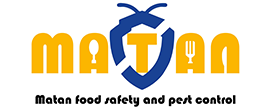Food Safety Training

The risks we face from the food we eat originate from potentially toxic chemicals (natural and man-made) and microbial contaminants. The leading cause of food-borne illnesses are infectious agents such as pathogens (viruses, bacteria) and contaminants. These courses are designed to inform its attendants on the risks they face and adequately equip them for the prevention and control of these pathogens.
The average diet contains numerous chemical substances; some are man-made, others are natural; some are beneficial, some inert, while others are toxic. For instance, some natural plant based chemicals contain toxins as natural pesticides that are produced to protect the plants against insects and herbivores, while others are applied intentionally as additives and remain in our food as pesticide residue.
Food safety is a complex, multifaceted concept – the World Health Organisation/Food and Agriculture Organisation (FAO) define it as” food is considered safe if there is reasonable certainty that no harm will result from its consumption under anticipated conditions of use”.
According to FAO, the goal of food safety assessments is to “provide assurance that, in light of the best available scientific knowledge, the food does not cause harm when prepared, used and/or eaten according to its intended use.”
The objective of this course is to ensure attendants get the skills to ensure food contamination risks are kept to an acceptable minimum during production, handling, processing and distribution of food.
Food Safety Courses:
- Introduction Certificate to Food Safety (Level 1)
- Foundation Certificate to Food Safety (Level 2)
- Intermediate Certificate to Food Safety (Level 3)
